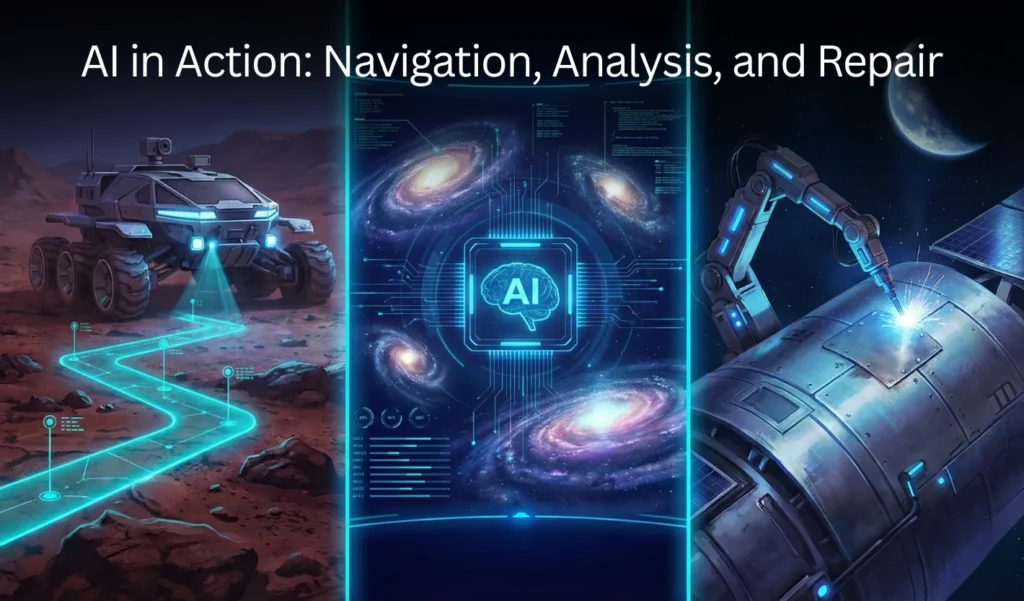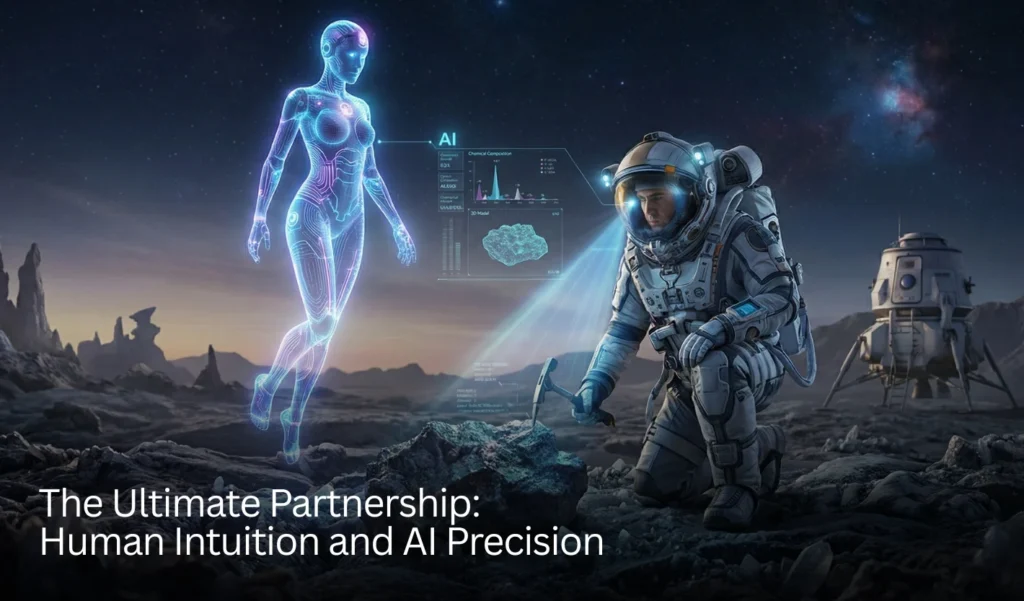

Are you ready to disrupt with AI? Join our Hackathon today! Click to Register
By WebOsmotic Team | Published on December 14, 2024
Summarize Article

Table of Contents
ToggleSpace has always been an ultimate frontier, fueling imaginations all over the world and stretching the limits of the technologies we are capable of creating. The closer we get to our future-envisioned lunar bases, Mars colonies, and distant galaxies being explored, one thing becomes hauntingly clear: AI in space exploration is no longer a luxury, but a necessity.
So how is AI shaping the future of space exploration? And what are the merits of AI in space exploration? Especially with regards to other questions, it will drive towards answering those mysterious questions about extraterrestrial life. Let’s go ahead to dive into greater detail into those areas of interest.
Exploring space is the largest gigantic challenge. All extreme elements, distances, limited resources, and almost every aspect that touches upon traveling in space shall need accurate precision and efficiency. This is how it branches with AI and the exploration of space.
Machines can ingest and put enormous amounts of data into trains, adapt to unexpected situations, and decide more quickly than humans. In space, where delayed communication with Earth might take minutes to hours, AI can function as the “brains on board,” so it empowers spacecraft and rovers to be completely autonomous.

Let us know the roles in which artificial intelligence applies in different phases of space travel and exploration:
• How do spacecraft navigate through the great expanses of space? AI-powered systems like that deployed in the Mars rovers use machine learning to study the terrain and decide on a safe path.
• AI additionally assists in performing orbital change and correcting course for precise trajectories without requiring constant supervision by humans.

The AI is a massive boon to space mission programs. So here are the top benefits of AI in space travel:
When spacecraft and rovers operate in an autonomous mode, dependence on the Earth control center is reduced. This is further speeding up timelines for the mission and increasing efficiency.
AI ensures the safety of both human crew members and robotic explorers by predicting equipment failure and analyzing risks.
Autonomous systems diminish the high demands for several large ground control teams as well as delay missions hence lowering the costs of space operations.
AI gives an opportunity to man explore geography too dangerous or far for humans, like the icy moons of Jupiter or the extreme conditions of Venus.
Yes! The artificial intelligence in space applications doesn’t await the future; it now lives in the vastness of space. Below are examples to show this fact:
Extraterrestrial research is searching for answers to some very important questions: Are we alone in the universe? How did life begin? AI is helping in this endeavor.
AI algorithms will study the atmosphere of exoplanets to decipher gases like oxygen and methane, which could be bio-indicative.
These rovers have artificial intelligence that studies alien environments, searching for the region with the best chance of supporting life or, at the least, valuable clues about the planet’s history.
The skies are no less expansive than the sea, and AI increases our abilities to overall perceive signals from deep space: radio waves or other messages from intelligent civilizations.
AI indeed offers new possibilities, but it also presents some challenges:
What will the future hold for AI and space exploration? Here are some really exciting possibilities:
It is a frequent query: Will there be a day when AI replaces humans in space exploration? The answer is no. AI will complement humans. Where AI has the advantage of processing data and making autonomous decisions, human adaptation brings creativity, intuition, and ethical reasoning. The future of space missions will be shaped by the combined efforts of AI and astronauts.
AI in space exploration has changed the face of how we are making strides towards the last frontier. From spacecraft flying on their own to extraordinary research outside Earth, AI is enabling humanity to unlock the deepest mysteries of the universe.
The advantages of AI in space exploration include efficiency, safety, and costs saved and distance has made it significant. Innovations and cooperative continued efforts would make sure that problems would not hinder AI’s major role in making progress in space exploration.
So, when we go to Mars, distant galaxies, and beyond, one thing is for sure: Artificial Intelligence will be our indispensable partner in exploring the cosmos. The question is not how will AI help in space travel – it’s how far can we go together?
The future is limitless, and with AI at our side, the stars are truly within reach.
Unlock exclusive insights and expert knowledge delivered straight to your inbox